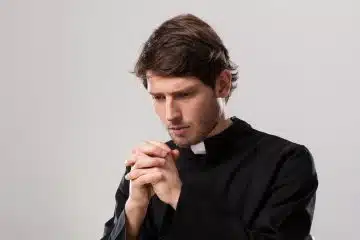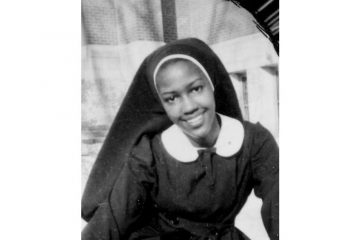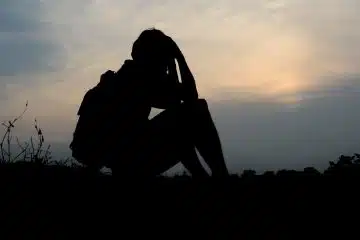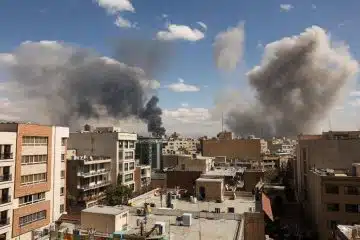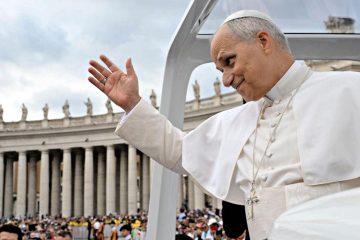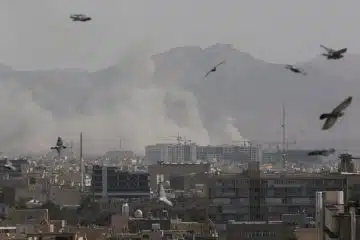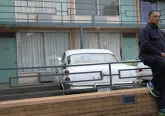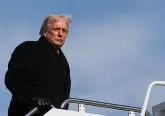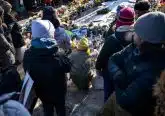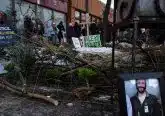‘God is inviting us to be part of the solution’- Black Catholic priests on racism and healing
by Jonah McKeown
Denver Newsroom, Jun 10, 2020 / 03:00 am MT (CNA).- Two black Catholic priests— one ordained six years, the other 42— shared their thoughts with CNA this week on the sin of racism, and the importance of praying, fasting, and advocating for healing.
Father Josh Johnson, pastor of Our Lady of the Holy Rosary Catholic Church in the diocese of Baton Rouge, told CNA he has been encouraging prayer for healing from racism for years.
George Floyd’s death on May 25 at the hands of Minneapolis police spurred protests across the world. Father Johnson said a friend sent him the video of the arrest either the day it happened or the day after.
“I shouldn’t have done it, I shouldn’t have done it, but I watched the video,” he said.
Johnson says he didn’t just see a fellow black man as he watched Floyd’s death play out on video— he saw a Christian man, a fellow member of the body of Jesus Christ.
“To watch a human being die, to watch a member of the body of Christ die on camera…He’s saying, ‘I can’t breathe,’ his calling out for his mom…to watch another human being die on camera was traumatizing,” Father Johnson told CNA.
“As a Christian, as a Catholic priest, I can’t watch that happen and not be affected and not grieve, not be sad, not experience anger that I pray was just, and then also just not be reminded of my own experiences, too,” he said.
Johnson’s father was a cop— in fact, he was captain of the Baton Rouge Police Department. Johnson says he has had the opportunity to collaborate with local law enforcement throughout his priesthood.
“However, that does not change the fact that when I’m not wearing my clerics, people in society don’t see me as Father Josh, they see me as another black man,” he said.
Johnson said he, like many people of color, has experienced harassment from law enforcement in the past.
“[George Floyd] could have been me. I can’t not think that way, because I’ve had negative experiences” he said.
“It’s painful. It’s really, really painful to watch that, and it’s even more painful for people to just disregard it, for Catholics to just disregard it and say, ‘Oh yeah, it was bad, but other things are bad too.’ It’s like, no, let’s stop. As disciples of Jesus Christ, let’s just stop, and let’s grieve together that one of our brothers, one of God’s beloved sons, was killed. Can we just please stop and grieve together and not dismiss his life as if it was nothing? This is a life we’re talking about.”
For too long, it seemed to Johnson, most Catholics have been inattentive to racism or overly entrenched in a left-or-right political mindset over the issue.
Johnson told CNA that in addition to talking, writing, and preaching about these topics for years, he has been constantly praying and fasting for an end to racism.
A few weeks before the Minneapolis officers killed George Floyd, Father Johnson had been inviting listeners of his podcast to pray a rosary for racial reconciliation.
“Finally now, this is the very first time in my life…that a number of Catholics have come together and decided, “We’re going to acknowledge that there’s a problem and we’re going to acknowledge that God is inviting us to be part of the solution,” Johnson said.
“If the disciples of Jesus Christ could come together, then we could be used by God to combat this evil that has just brought about so much damage to the body of Christ, and to men and women made in the image of God in the United States of America, for hundreds and hundreds and hundreds of years.”
Any effort to combat racism must start in the heart, with prayer, he said.
“Through our prayers— our intentional prayers— through our fasting, through our listening and learning things that we didn’t know, and through collaborating with each other, to work together, to bring down and to reform and transform these systems that continue to perpetuate division in the body of Christ.”
Johnson said his encouragement toward prayer has garnered positive feedback from people of faith, especially white people, he said, with many realizing “that they could do something— that even though they might not personally have ever said the n-word, or they might not participate in a practice or policy that accommodates white people and alienates black people or brown people, even though they don’t participate in that, that they’re still responsible to pray against racism.”
Johnson stressed the power of penance and fasting as a way to heal the Body of Christ. Throughout the recent revelations of clerical sexual abuse in the US, Johnson says he has been taking on fasts and sacrifices for the healing of those affected.
He also recommended following black Catholic leaders online, such as Sister Josephine Garrett and Deacon Larry Oney, and also encouraged Catholics to consider making pilgrimages to places like the Equal Justice Initiative Legacy Museum in Montgomery, Alabama.
Above all, prayer is the key, he reiterated.
“I believe that the Lord has created me for this time, for a time such as this,” Johnson said.
“I’m so excited to finally have allies and other disciples of Jesus Christ walking with me to fight this battle, to bring about healing in the body of Christ and restoration, renewal and racial reconciliation in our country.”
“This is one that we cannot ignore”
Father James Boddie, pastor of Christ the King Catholic Church in Jacksonville, Florida, has been a priest for 42 years.
Christ the King is a very diverse community. In addition to many African Americans— like Father Boddie— there are large numbers of Vietnamese people, Hispanics, families from Haiti, from Africa, and many white parishioners as well.
Like Father Johnson, Father Boddie’s first reaction upon seeing the video of George Floyd’s death was horror, and an immediate desire to pray.
“I went immediately into prayer for Mr. George Floyd, for his family and for the police department,” Father Boddie told CNA.
“The actions of a few police officers does not cast a shadow over the entire police department, but those individuals who acted that way was just…it was unimaginable.”
When he entered St. John Vianney Minor Seminary in Miami back in the 1970s, he was the first African-American seminarian from Florida to study there.
Father Boddie remembers the civil rights movement of the 1960s firsthand. In fact, his father was involved in civil rights efforts in the Jacksonville area.
“He worked very hard in the community, addressing those issues [and] working with others…whether it’s for the desegregating schools or issues that affect the African American community, but also issues that affect the community at large, because there’s a lot of issues out there that the only way to really approach it is the entire community coming together,” Boddie said.
“I saw [in] the first mobilization that people were marching, from the old, the young people from various cultures, various backgrounds from very different communities,” he said.
Goal setting is an important part of the process, he said. Government leaders, faith leaders, and other community members should work together to plan out what they want to achieve.
When protests begin to turn violent, a re-focusing on the issues is necessary, Father Boddie said.
“When you started to see the violence and destruction taking place, that’s when I felt that it began to lose focus. Why is that destruction? Why are particular groups destroying people’s property, livelihood?” he said.
“Focus back on what they’re marching for: to address the issue of racism, the issue of injustice, but also do it in peaceful means and involving everyone from the community and not going towards destruction of property, of burning down buildings, because that is contrary to everything,” he said.
He also suggested that Catholics read the US bishops’ 2018 pastoral letter against racism, Open Wide Our Hearts, perhaps even in a group study setting at their parish.
“My hope is that everyone comes together— everyone comes together as one— identifying that, yes, this is a problem. This is one that we cannot ignore,” he said



